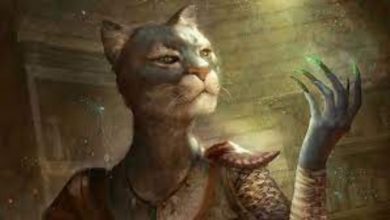The Most Popular Viking Names For Girls

During the Viking Age, many boys were given names that were derived from the god Thor, such as Toke and Thorsten. The use of animal names was also popular. It was not uncommon to come across Vikings with names such as Orm (Serpent), Ulf (Wolf), and Bjrn (Bear) (Bear). These names commemorate the gods’ formidable adversaries, such as the Midgard serpent and the wolf Fenrir, which the Norse gods had to defeat at Ragnarök, the festival of the harvest.
It is also possible that the names have special powers associated with them. For example, Frida means “peace” and Astrid means “beautiful and loved,” which suggests that Astrid was a highly sought-after woman. This was in contrast to Hilda, which literally translates as “the fighter. ” The names provided the Vikings with strength and protection throughout their lives.
A large number of names from the Viking Age are still in common usage today. In Denmark, people with the names Rune, Erik, Sigrid, and Tove are still alive and well. In the box are many of the names that the Vikings were known by along with their meanings.
Read More: Roman Names List That Are Popular
We Don’t Know Where We Got The Names.
We are familiar with Viking names because of their appearance in runic inscriptions and place names, for example. The names of the Vikings have also been mentioned in a few foreign sources. Many of these names are unique to Scandinavian cultures. As a result, we can distinguish them from names that are commonly used in other regions. Due to the fact that expeditions were primarily undertaken by men, we find more men’s names than women’s names. Examples of this can be found, for example, in the Viking communities of England.
The origins of the name tradition can be traced back to the preceding period. In particular, during the Viking Age, the names of the Norse gods and mythological animals gained popularity among the people. During the late Viking Age and early Middle Ages, certain names became established in specific families, such as Harald, Svend, and Knud in the Danish royal family during the late Viking Age and early Middle Ages.
Some Vikings were also known by their given names. Some of these could be used to indicate familial relationships (for example, the son or daughter of someone) or the place where a person originally came from (e.g. Bjarke the Norwegian, who lived in Denmark). The name could also be used to denote a unique characteristic or possession (e.g. Asgot with the Red Shield).
People were probably more imaginative with bynames after the Viking period when Vikings from the “old days” were described and written about, but it is also possible that this was the case. The names of important figures such as Harald Bluetooth and Harald Fairhair are mentioned in these sources only by their forenames, but it is unclear whether these names were used when they were still alive.
When Christianity was introduced into Scandinavia during the late Viking period, biblical names began to become increasingly popular. The names of the Vikings, on the other hand, were not forgotten. Names that have their origins in the Viking period are still given to children today.
Read More: Best Japanese Baby Girl Names
Why Did You Choose A Viking Given Name?
Because Norway consistently ranks first in the world’s happiest countries rankings, or because cool Viking names are in high demand in today’s pop culture, it’s possible that this is the case.
However, many Norse-inspired names have endured as popular Scandinavian names, regardless of the reason for their sudden international popularity. Most of them have gone in and out of style to varying degrees over the course of time.
We’ve compiled a list, which is by no means exhaustive, of items that will not give your adorable little Viking cause for complaint.
Viking Naming Customs And Practices
When it came to naming their children, Vikings followed a few common traditions.
The Name After a Relative – Because Vikings revered their Scandinavian ancestors, they believed that naming their child after one of them would pass on the deceased’s good fortune and success to him or her.
Vikings honored their Norse deities in numerous ways, including by naming their children after the gods who guided them. In many cases, they would take elements of a Norse god’s name and use them to create a new moniker of their own. For example, Thor was frequently renamed Thorald or Thorgest in mythology.
After a Sibling – When naming their children, parents would frequently use the first letter of the oldest sibling as the starting point for the rest of the name. The practice is common among families of all ages, including those with children who all begin with the same first letter. The first element of a name was also used by Scandinavian parents for all of their children, resulting in names like Astrid, Aren, Astrid, and so forth.
Names Of Vikings For Girls
In ancient Scandinavian and Greenlandic, the name ma means “eagle.” In Norse mythology, ma is a giantess.
Norwegian and Swedish words that mean “god” include “se.”
Astra is a Norwegian and Swedish name that translates as “as beautiful as a god.”
Astrid is a female given name in Sweden, Norway, and Denmark that means “beautiful goddess, divine strength.”
Borghild – Norwegian, meaning “battle fortification”; Norse Mythology, the wife of Sigmund Brynhild – Norse Mythology, a maiden who was rescued by a man pretending to be her husband Borghild – Norwegian, meaning “battle fortification”; Norse Mythology, the wife of Sigmund
Eir is an Icelandic and Norwegian word that means “mercy.” She is a goddess of healing and medicine in Norse mythology.
Elli is the personification of old age in Norse mythology.
“Uncertain” in Icelandic, Swedish, Norwegian, and Danish; in Norse mythology, Embla was one of the first two humans to walk the earth.
Erica is a Swedish name that translates as “mighty ruler.”
Frea is a Norse goddess of love, beauty, war, and death who appears in Norse mythology.
Freja is a goddess of love, beauty, war, and death in Norse mythology. She is known in Danish and Swedish as “lady.”
Freya is a Norse goddess of love, beauty, war, and death who appears in Norse mythology.
Frigg is a Norse goddess of the earth, the air, and fertility who appears in Norse mythology.
Germanic for “enclosure,” Gerd is a fertility goddess and a frost giantess in Norse mythology. Gerd can be found in Swedish, Norwegian, and Danish.
Grid – Norse Mythology, a frost giantess and the mother of Varr by Odin Heidrun – Norse Mythology, a goat who would eat the leaves from the tree of life and produce mead in her udder
Helga speaks Norwegian, Danish, Swedish, Icelandic, German, Dutch, Finnish, and Hungarian, among other languages.
Hilda is a name that means “battle” in several languages, including Dutch, Swedish, Norwegian, and Danish.
Hilde is a German, Dutch, and Norwegian name that translates as “battle.”
Hildr is a valkyrie from Norse mythology.
Hlife is an ancient Scandinavian and Icelandic word that literally translates as “protection.”
Hrefna is an ancient Scandinavian word that translates as “raven.”
Hulda is an Icelandic, Swedish, Norwegian, Danish, and German name that means “hiding, secrecy.” In Norse Mythology, she is a sorceress named Hulda.
Idunn (Norse Mythology), goddess of spring and immortality, is a goddess of spring and immortality.
Kara is a valkyrie from Norse mythology.
Swedish, Norwegian, and Danish names containing the word “protection” include Liv.
Liva is a Danish word that means “protection.”
“Live” is a Swedish, Norwegian, and Danish word that means “protection.”
Nanna – Nanna is a Danish, Swedish, Norwegian, and Icelandic word that means “daring, brave.” She is a goddess from Norse mythology who died of grief after her husband Balder was killed.
Ragnfrr – Ragnfrr is an ancient Scandinavian word that translates as “beautiful advice.”
Randi is a Swedish, Norwegian, and Danish name that translates as “beautiful advice.”
Revna is a Faroese word that means “raven.”
Roar is a Norwegian word that means “warrior.”
Rna is an ancient Scandinavian, Icelandic, and Faroese name that means “secret knowledge.”
“Seeing one” is a Swedish and Icelandic word that means “seeing one.” Saga is a goddess of poetry and history in Norse mythology.
Sigrid is a Norwegian, Swedish, Danish, and Finnish name that translates as “beautiful triumph.”
Norse Mythology: Sif is the wife of Thor and is known in Swedish, Norwegian, and Danish as “bride.”
Siv is a Swedish, Norwegian, and Danish word that means “bride.” In Norse mythology, she is the wife of Thor.
Skadi is a mountain giantess from Norse mythology who is associated with winter and skiing.
Skuld is a Norn of the future in Norse mythology, and one of the three goddesses of destiny.
Solveig is a Norwegian and Swedish name that translates as “strength of the sun.”
Known in Norse Mythology as Svanhild, she is the daughter of Sigurd and Gudrun Urd. She is also known as the Norn of the Past and one of the three goddesses of destiny.
Verdandi – Norse Mythology, Norn of the Present, one of the three goddesses of destiny, one of the three goddesses of the future
Names of Vikings for Boys
Aesir is a Norse god who appears in Norse mythology.
Alf – a Swedish, Norwegian, and Danish word that literally translates as “elf”; Norse mythology. King Alf pursued and eventually married a reluctant maiden who later changed her mind.
Alvis was a dwarf in Norse mythology who was destined to marry Thor’s daughter Thrud.
Aren is a Danish word that means “eagle.”
Arne is a name that can be found in Swedish, Norwegian, and Danish and means “eagle.”
Aric is a Swedish and Old Norse name that translates as “eternal ruler.”
Asbjorne is a Norwegian and Danish name that means “bear.”
Arkyn is an Old Norse name that translates as “eternal king’s son.”
Bjarke is a Danish word that means “bear.”
Bjarne is an ancient Scandinavian and Faroese name that translates as “bear.”
Bjoern is a Swedish, Norwegian, and Danish word that translates as “bear.”
Björn is a Swedish, Icelandic, and German word that translates as “bear.”
Bragi is an Icelandic word that means “first.” In Norse mythology, he is the Norse god of poetry.
Ebbe is a Danish, Swedish, and Norwegian word that translates as “wild boar.”
Erik is a Scandinavian name that translates as “eternal ruler.”
Erling is a Swedish, Norwegian, and Danish word that literally translates as “heir of the clan, chief.”
Espen is a Danish and Norwegian word that means “bear.”
Espen is a Danish and Norwegian word that means “bear.”
He was a giant, monstrous wolf who appeared in Norse mythology. He was Loki’s son by evil giantesses Angrboa and was destined to kill the god Odin at Ragnarök, which was the final battle of the Norse saga.
Frey is a Norse god of fertility, sunlight, and rain who appears in Norse mythology.
Freyre is a Norse goddess of fertility, sunlight, and rain who appears in Norse mythology.
Frode is a Danish and Norwegian word that means “learned and wise.”
Gandalf is an Old Norse name that translates as “wand elf.”
Gisli is an Icelandic, Faroese, and Ancient Scandinavian word that literally translates as “pledge.”
Gunnar is a name that can be found in several languages, including Swedish, Norwegian, Danish, and Icelandic. In Norse mythology, he is the husband of Brynhildr, a maiden who was rescued by another man who pretended to be her husband. Gunnar
Harald is a Norwegian, Danish, and Swedish name that translates as “lord and ruler.”
Helge – a Norwegian, Danish, Swedish, and Finnish name that means “holy, blessed” or “blessed.”
Herleif is a Norwegian word that translates as “warrior descendant.”
Hrafen is an ancient Scandinavian name that translates as “raven.”
Ivar is a Swedish, Norwegian, and Danish word that literally translates as “bow warrior, archer.”
“Descendant, heir” is the meaning of the name Leif in Swedish, Norwegian, and Danish.
Loki is a god of Norse mythology who is known as the trickster god.
Magnus is a Swedish, Norwegian, and Danish given name that means “great, mighty.”
Njord is a Swedish, Norwegian, and Danish word that translates as “strong, vigorous.”
Odin is the highest of the Norse gods, presiding over art, war, wisdom, and death, according to Norse mythology.
Olaf is a Norwegian and Danish name that literally translates as “ancestor’s descendent.”
Ragnar is a Swedish, Norwegian, and Icelandic word that translates as “army rule.”
Rune is a Norwegian, Danish, and Swedish word that translates as “secret lore.”
A dwarf who created magical items for the gods in Norse mythology, Sindri is an ancient Scandinavian and Icelandic word that means “sparkling.”
Norse Mythology: Tor is a Norse god of strength, thunder, war, and storms who is the son of Odin. Thor is a Norse Mythology: Tor is a Norse god of strength, thunder, war, and storms who is the son of Odin. Tyr is a Norse Mythology: god of war and justice who is the son of Odin.
Follow TechWaver for more!



